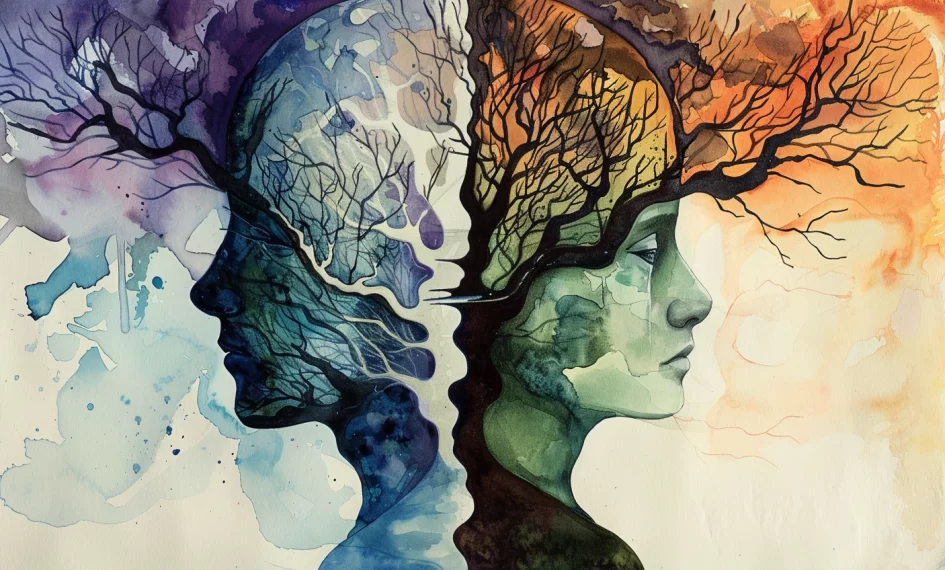Definition:
Bipolar disorder is a mental health condition characterized by extreme mood swings that include emotional highs (mania or hypomania) and lows (depression). These mood swings can affect sleep, energy levels, behaviour, judgment, and the ability to think clearly. Episodes of mood swings may occur rarely or multiple times a year, and they can vary in severity.
Etymology & Origin:
The term “bipolar” is derived from the prefix “bi-“, meaning “two,” and the word “polar,” which comes from the Greek “polos,” meaning “axis” or “pivot,” metaphorically referring to the opposing ends or poles of such an axis. This reflects the disorder’s nature, characterized by the two extremes of mood states: mania and depression. The use of “polar” in this context highlights the significant emotional contrasts experienced by individuals with this condition, illustrating the shift between two opposing emotional and behavioural states.
Examples:
- Experiencing periods of elevated mood, increased activity, or energy levels, known as manic episodes, which can include risky behaviour or poor decision making.
- Undergoing phases of depression, marked by feelings of sadness, hopelessness, and a lack of interest or pleasure in activities.
- Treatment often involves a combination of medication and psychotherapy to manage symptoms and improve quality of life.



